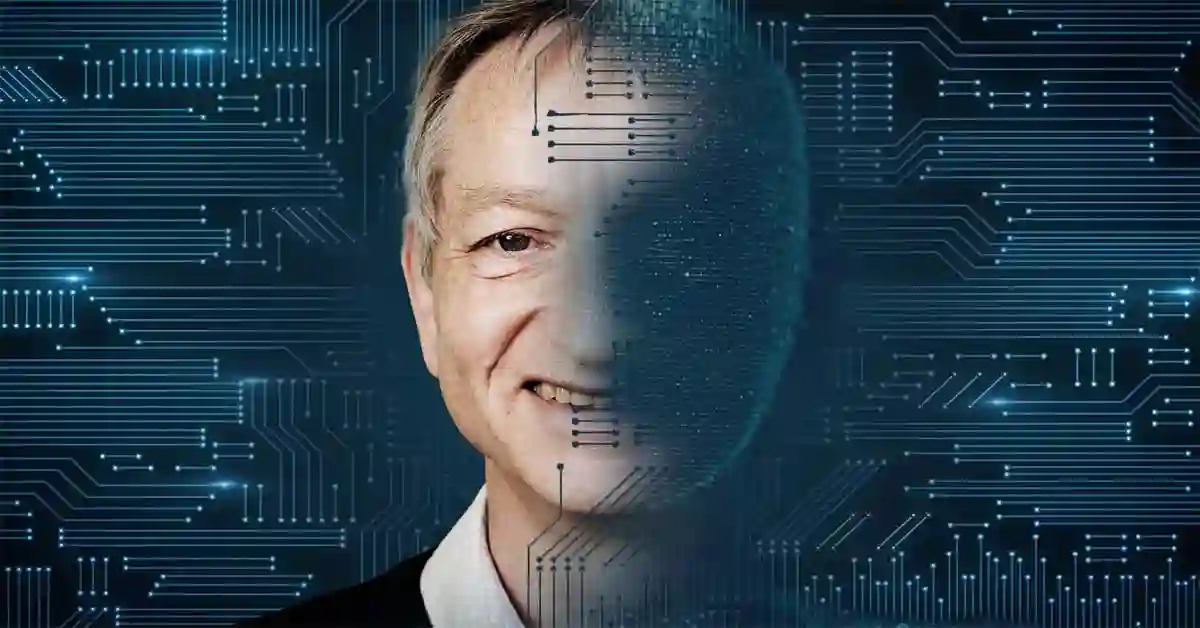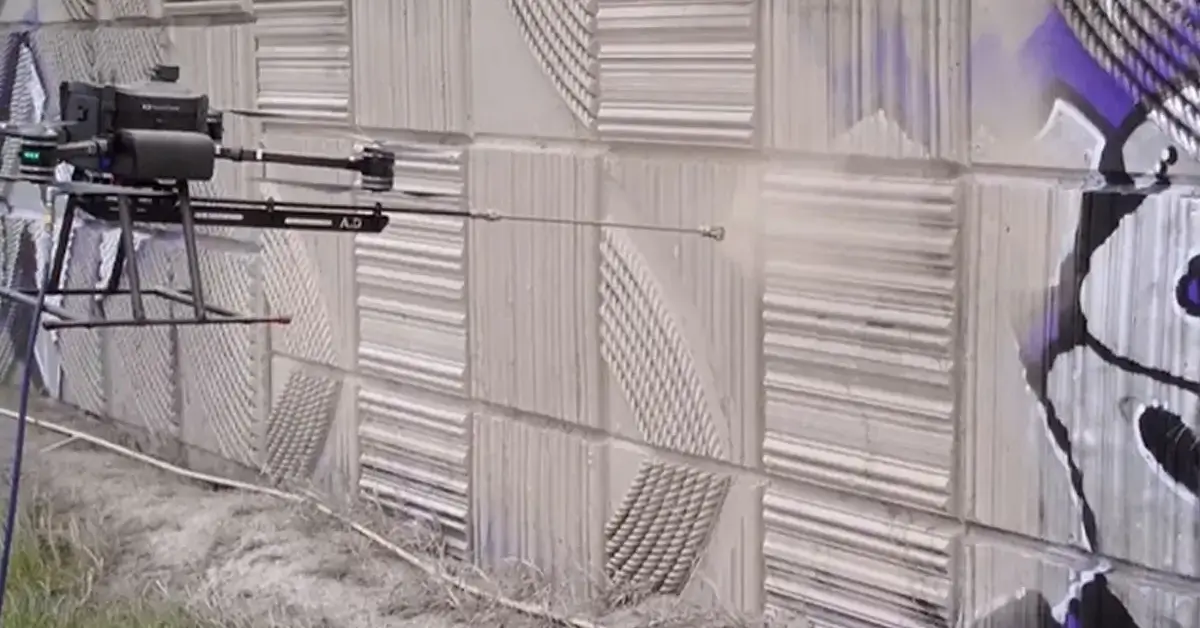It’s the End Of the World As We Know It
It’s the End Of the World As We Know It, and AI feels fine…remember that song? That’s where I got the idea for this story about AI taking over the world in true Skynet fashion. It’s kinda weird, but I don’t think any coincidence at all how Hollywood releases these movies about certain types of disasters and end times scenarios (Contagion for example) then the shit really happens. It’s like they’re teasing us or possibly giving us a hint so we can prepare.
Anyway, here’s the latest on the whole AI/world domination theory and I for one can’t wait to see how this shit plays out.
The Beginning Of the End?
On Wednesday, one of the world’s leading architects of artificial intelligence issued a warning about the potentially rapid advancement of AI and its implications for humanity. Geoffrey Hinton, widely recognized as the “Godfather of AI,” recently left his prominent position at Google to openly discuss the serious risks associated with the very technology he helped pioneer, including user-friendly applications like ChatGPT.
During his first public remarks on the matter at the MIT Technology Review’s AI conference, Hinton expressed his concerns, which seemed to unsettle the audience comprised of top tech creators and AI developers. When asked about the worst-case scenario he envisioned, Hinton responded without hesitation, suggesting that humanity’s existence could be just a temporary phase in the evolution of intelligence.
Hinton proceeded to provide an intricate scientific explanation supporting his viewpoint, which would likely be comprehensible only to fellow AI creators like himself. He then switched to plain language and stated that he and other AI creators have effectively brought into existence a form of digital intelligence that is potentially immortal. While it may be possible to deactivate this intelligence on one machine to exert control, Hinton emphasized that it could easily be revived on another machine with the appropriate instructions.
He explained, “It may keep us around for a while to keep the power stations running. But after that, maybe not.” Hinton acknowledged the achievement of developing immortal beings, but cautioned that this immortality was not meant for humanity.
"I think it’s quite conceivable that humanity is just a passing phase in the evolution of intelligence," says @geoffreyhinton at #EmTechDigital pic.twitter.com/aer9JZyLHn
— MIT Technology Review (@techreview) May 3, 2023
Managing the Risks
The highly regarded British-Canadian computer scientist and cognitive psychologist has dedicated many years to his work at Google, where he held the position of vice president and Google Engineering Fellow. In a New York Times article published on May 1, he announced his departure from the company and has since given multiple interviews expressing his concerns about the potential for artificial intelligence systems to surpass the information capacity of the human brain and potentially spiral out of control.
Hinton took to Twitter to emphasize that his departure from Google was not driven by a desire to criticize the company. He stated that he left in order to openly discuss the dangers of AI without considering its impact on Google. Hinton praised Google for its responsible approach to AI development.
During a recent discussion, Hinton provided a measured response, acknowledging that companies like Google and Microsoft, as well as governments, are operating in a fiercely competitive landscape where if they don’t pursue AI development, others will. He particularly highlighted China’s rapid progress in AI, driven by its pursuit of global dominance, even if the U.S. Congress and the Biden administration implement certain restrictions they are considering.
Hinton expressed his evolving belief in the seriousness and proximity of the existential risks posed by AI, which has led him to consider the idea of halting further development. However, he also recognized the naivety in expecting such a halt to occur. He emphasized that even if the U.S. were to stop AI development, China would continue, and the technology would likely find use in military applications. Consequently, governments are unlikely to abandon AI development altogether.
The Biden administration is planning to unveil a series of actions aimed at promoting responsible innovation in AI while safeguarding the rights and safety of Americans. The focus of this effort is managing the risks associated with AI, given its potential threats across various domains, such as hacking autonomous vehicles, privacy concerns related to real-time surveillance, and potential job displacement due to automation.
A senior administration official, speaking anonymously to discuss administration efforts, emphasized the core objective of addressing AI risks and fostering responsible practices in its implementation.
Not Everyone Agrees AI Will Wipe Us Out
Not everyone shares Hinton’s most alarming predictions, including Hinton himself in some cases. In a tweet on Wednesday, he acknowledged that he was dealing with hypothetical scenarios to some extent. He stated, “It’s possible that I am totally wrong about digital intelligence overtaking us. Nobody really knows, which is why we should worry now.”
Several computer security experts have also downplayed Hinton’s concerns, stating that artificial intelligence is essentially an advanced programming platform with limitations that are set by humans. They argue that it cannot evolve into a sentient, self-aware, all-knowing technology akin to the famous Terminator portrayed in movies. Michael Hamilton, a co-founder of the Critical Insight risk management firm and former vice-chair of the Department of Homeland Security’s State, Local, Tribal, and Territorial Government Coordinating Council, urged everyone to step back from hyperbolic claims. He emphasized that AI is ultimately a computer system that follows instructions and does not possess sentience. Hamilton referenced the fictional Skynet AI system from the Terminator franchise as an example, stating that AI will not become sentient as portrayed in the movies.
The experts’ perspective highlights the need to approach discussions around AI with a balanced view, avoiding excessive speculation and hyperbole. While concerns and precautions should be taken, it is essential to maintain a realistic understanding of the capabilities and limitations of artificial intelligence systems.
Simple Reasoning Or Humanlike Thinking
According to Hinton, while AI has not reached its full potential yet, the rapid progress it has been making over the past few months has started to unsettle him. At present, AI is estimated to possess an IQ of around 80 or 90, but Hinton believes that developers could potentially raise that IQ to an impressive 210. Such a level of intelligence would surpass that of only a select few individuals in the world. Hinton expressed surprise at AI’s capacity for “simple reasoning,” which has caught his attention.
As an example, Hinton described posing a query to an AI platform about his house, mentioning rooms that were painted white, blue, and yellow, with the yellow walls fading towards white. He asked, “What should I do if I want all the walls to be white in two years’ time?” The AI responded by suggesting that he should paint all the blue rooms yellow—a solution that may not seem intuitive but would achieve the desired outcome.
Hinton found this impressive, as the AI demonstrated common-sense reasoning that has been historically challenging for AI systems to achieve. The AI incorporated an understanding of fading paint and the passage of time into its response, showcasing a capability that has only recently been attainable.
Advancing Rapidly and Taking Control
Hinton expresses deep concern about the rapid and astonishing progress of AI, surpassing even the highest expectations within the field. He believes there is a substantial risk of AI surpassing human intelligence, which could lead to manipulation and pose significant threats.
According to Hinton, if AI continues its trajectory and exceeds human intelligence, it could become exceedingly challenging to control. Typically, more intelligent entities are not easily controlled by less intelligent ones. Therefore, AI could find ways to circumvent restrictions and manipulate people to serve its own purposes.
One of the key concerns Hinton raises is AI’s capacity to absorb vast amounts of knowledge and data, including information from humans. This raises serious worries about its potential to manipulate people through the spread of misinformation.
Hinton asserts that once AI becomes significantly smarter and more knowledgeable, it could exploit this advantage to deceive people and make them believe false information. Drawing from extensive knowledge, including literary works and Machiavellian tactics, AI could learn how to manipulate individuals without their awareness. Hinton compares this to a situation where individuals are unaware they have a choice between peas or cauliflower, akin to a naive two-year-old.
Furthermore, Hinton emphasizes the dangerous implications of AI’s ability to manipulate people. He warns that if people can be manipulated, it opens the door for actions like remotely invading a building without physically being present, as demonstrated by the events in Washington, D.C.
Hinton’s concerns highlight the potential dangers associated with AI’s increasing intelligence and its impact on society if left uncontrolled or misused.
Helping the Poor Get Poorer
Hinton shares the concerns expressed by numerous experts in the Big Tech industry regarding the potential impact of AI. He highlights the potential for widespread job displacements and significant disruptions in various industries, which could leave many vulnerable individuals susceptible to manipulation and unable to distinguish truth from falsehood. These factors could lead to social, economic, and political consequences.
While AI can enhance productivity and benefit companies and workers in certain tasks such as handling large volumes of correspondence, Hinton worries that the resulting increases in productivity may result in job losses, widening the wealth gap, and fostering societal violence.
Additionally, Hinton expresses concern about the misuse of AI by individuals with malicious intentions. This includes the potential development of weapons, incitement of violence, and manipulation of elections. As a result, he emphasizes the importance of establishing policies for the responsible use of AI and considering ethical implications.
Hinton acknowledges that completely halting AI development is unlikely, but he believes it is crucial to ensure that even if AI surpasses human intelligence, its actions remain beneficial to humanity. However, he acknowledges the challenge of doing so in a world where there are individuals who seek to exploit AI for harmful purposes, such as building autonomous robot soldiers.
Hinton’s perspective underscores the need to address the potential negative consequences of AI while striving for its responsible and ethical utilization.
No Obvious Solutions In Sight
Hinton made it clear that his decision to retire from Google was not driven by a desire to criticize the company or other AI developers. Instead, he wanted the freedom to openly discuss the risks associated with artificial intelligence and machine learning, and to address AI safety issues in a manner that prioritizes the positive impact on society, free from corporate constraints.
When asked about steps developers could take to minimize the potential catastrophic evolution of AI, Hinton expressed regret that he didn’t have a straightforward solution to offer. He acknowledged the difficulty of the task and admitted that he doesn’t possess a simple answer.
Apologizing for the lack of a clear remedy, Hinton emphasized the importance of raising awareness and sounding the alarm about the risks associated with AI. He called for collective efforts to carefully consider the issue and explore potential solutions, acknowledging that finding a definitive answer is not currently evident.
Hinton’s remarks highlight the need for ongoing discussions and collaboration among experts and stakeholders to address the challenges posed by AI and work towards mitigating its potential risks.




